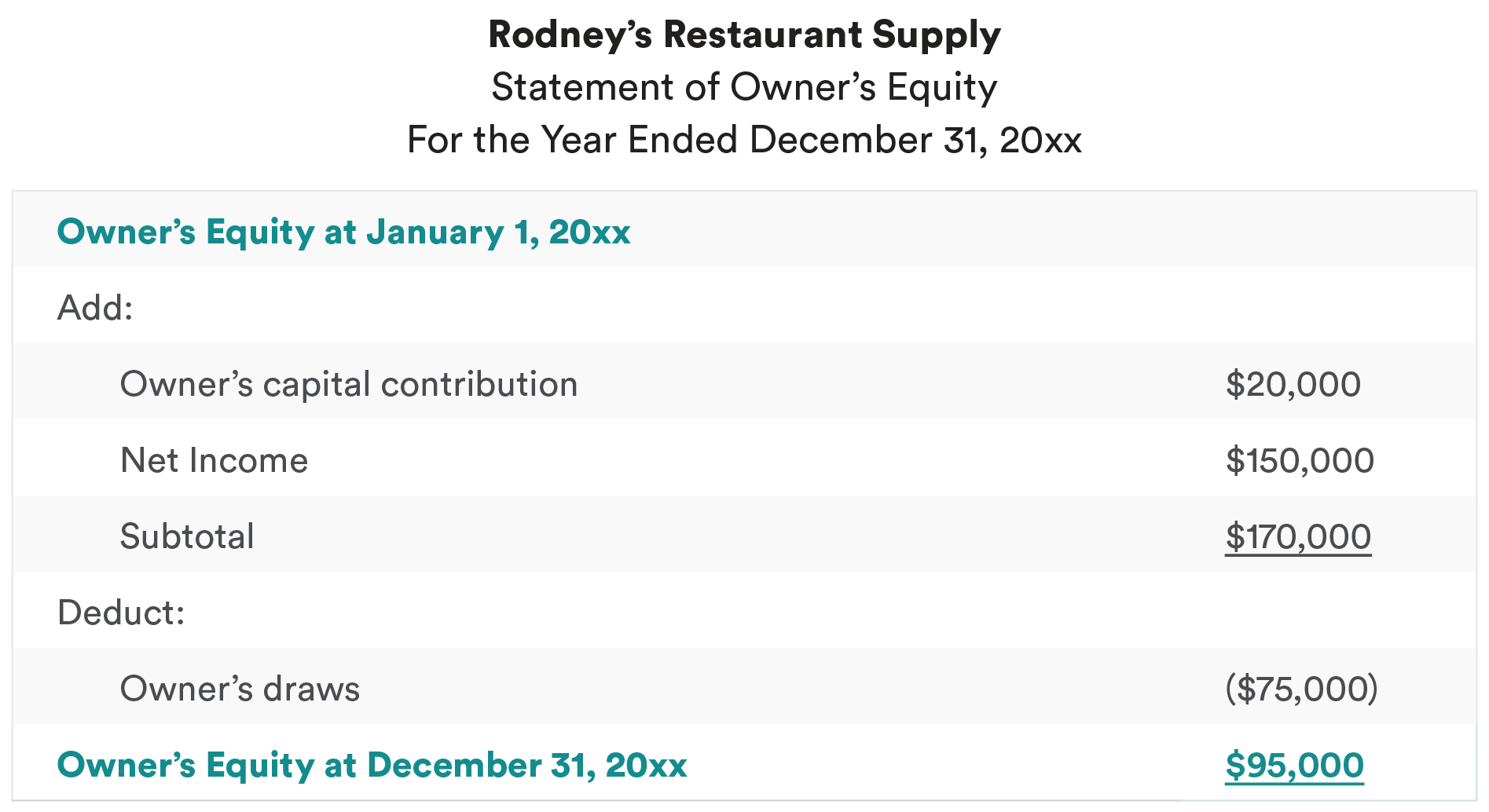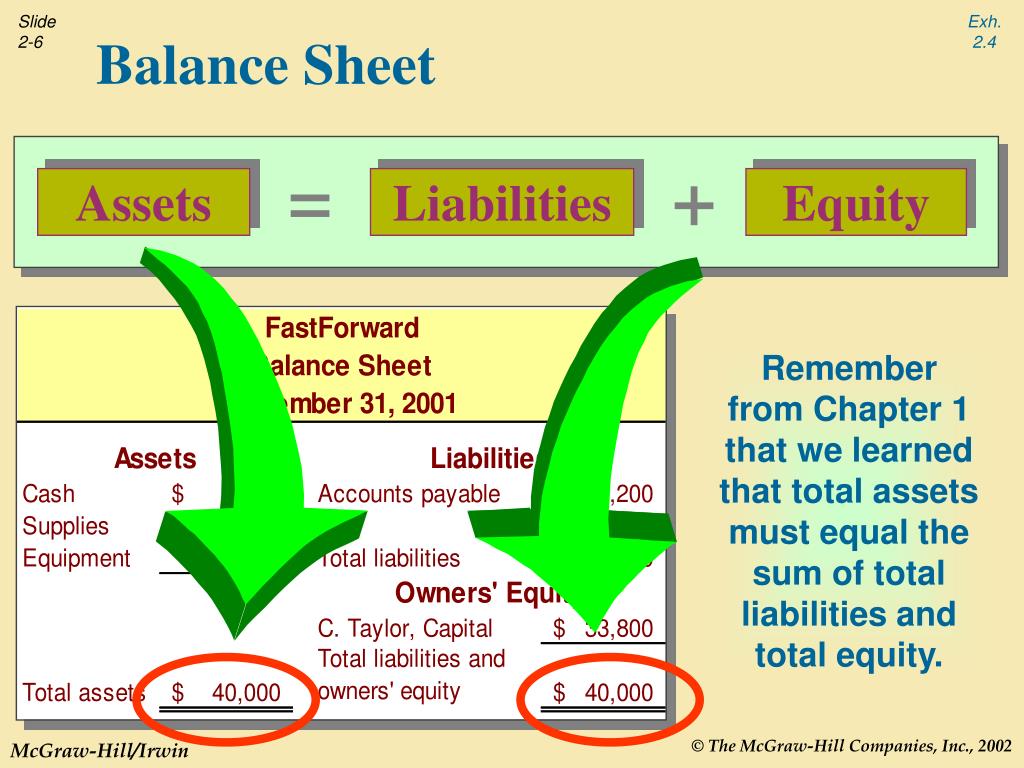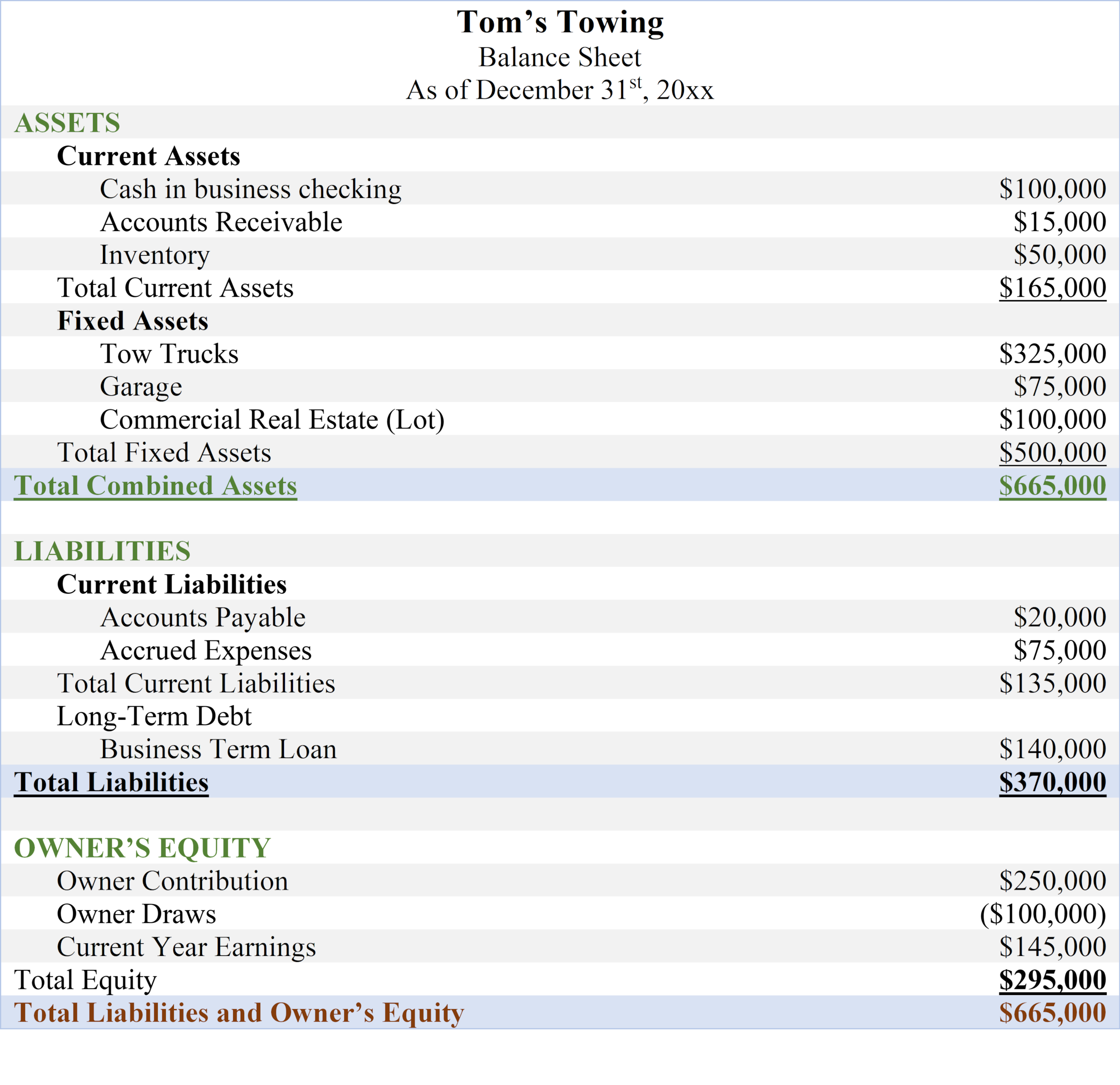What Is Owner's Equity On A Balance Sheet - Assets = liabilities + owner’s equity. A negative owner’s equity often shows that a company has more. Owner’s equity grows when an owner increases their investment or the company increases its profits. The owner’s equity is recorded on the balance sheet at the end of the accounting period of the business. Owner’s equity is part of the financial reporting process. The amounts for liabilities and assets can be found within your equity accounts on a balance sheet—liabilities and owner’s equity. Owner’s equity is what is left over when you subtract your business’s liabilities from its assets. Owner’s equity on a balance sheet. The term is typically used for sole proprietorships. It is obtained by deducting the total liabilities from the total assets.
Owner’s equity is one of the three main sections of a sole proprietorship’s balance sheet and one of the components of the accounting equation: Owner’s equity is part of the financial reporting process. It is obtained by deducting the total liabilities from the total assets. Owner’s equity grows when an owner increases their investment or the company increases its profits. How owner’s equity is shown on a balance sheet. Assets = liabilities + owner’s equity. A negative owner’s equity often shows that a company has more. Owner’s equity on a balance sheet. The term is typically used for sole proprietorships. Owner’s equity is listed on a company’s balance sheet.
Owner’s equity is part of the financial reporting process. Owner’s equity is what is left over when you subtract your business’s liabilities from its assets. The owner’s equity is recorded on the balance sheet at the end of the accounting period of the business. The amounts for liabilities and assets can be found within your equity accounts on a balance sheet—liabilities and owner’s equity. Owner’s equity grows when an owner increases their investment or the company increases its profits. Owner’s equity is one of the three main sections of a sole proprietorship’s balance sheet and one of the components of the accounting equation: The term is typically used for sole proprietorships. How owner’s equity is shown on a balance sheet. For llcs or corporations, the term used is shareholder’s or stockholder’s equity. Owner’s equity on a balance sheet.
Owner’s Equity What It Is and How to Calculate It Bench Accounting
Owner’s equity is one of the three main sections of a sole proprietorship’s balance sheet and one of the components of the accounting equation: The term is typically used for sole proprietorships. The amounts for liabilities and assets can be found within your equity accounts on a balance sheet—liabilities and owner’s equity. Assets = liabilities + owner’s equity. Owner’s equity.
PPT Financial Statements and Business transactions PowerPoint
Owner’s equity is one of the three main sections of a sole proprietorship’s balance sheet and one of the components of the accounting equation: Owner’s equity is what is left over when you subtract your business’s liabilities from its assets. Owner’s equity is part of the financial reporting process. Assets = liabilities + owner’s equity. The amounts for liabilities and.
Owners’ Equity, Stockholders' Equity, Shareholders' Equity Business
Owner’s equity grows when an owner increases their investment or the company increases its profits. How owner’s equity is shown on a balance sheet. Owner’s equity on a balance sheet. The amounts for liabilities and assets can be found within your equity accounts on a balance sheet—liabilities and owner’s equity. The owner’s equity is recorded on the balance sheet at.
2.3 Prepare an Statement, Statement of Owner’s Equity, and
Owner’s equity is part of the financial reporting process. The amounts for liabilities and assets can be found within your equity accounts on a balance sheet—liabilities and owner’s equity. The owner’s equity is recorded on the balance sheet at the end of the accounting period of the business. For llcs or corporations, the term used is shareholder’s or stockholder’s equity..
LESSON 72 Balance Sheet Information on a Work Sheet ppt download
How owner’s equity is shown on a balance sheet. Owner’s equity is listed on a company’s balance sheet. Owner’s equity on a balance sheet. Owner’s equity is what is left over when you subtract your business’s liabilities from its assets. Owner’s equity is one of the three main sections of a sole proprietorship’s balance sheet and one of the components.
Owner’s Equity What It Is and How to Calculate It Bench Accounting
A negative owner’s equity often shows that a company has more. Owner’s equity on a balance sheet. Owner’s equity is part of the financial reporting process. How owner’s equity is shown on a balance sheet. Assets = liabilities + owner’s equity.
Owner's Equity
Owner’s equity is one of the three main sections of a sole proprietorship’s balance sheet and one of the components of the accounting equation: Owner’s equity is listed on a company’s balance sheet. Owner’s equity on a balance sheet. It is obtained by deducting the total liabilities from the total assets. The owner’s equity is recorded on the balance sheet.
Owner's Equity in Accounting AdrielzebClay
A negative owner’s equity often shows that a company has more. Owner’s equity is listed on a company’s balance sheet. How owner’s equity is shown on a balance sheet. Owner’s equity is what is left over when you subtract your business’s liabilities from its assets. Assets = liabilities + owner’s equity.
Balance Sheet Key Indicators of Business Success
It is obtained by deducting the total liabilities from the total assets. Owner’s equity is what is left over when you subtract your business’s liabilities from its assets. The owner’s equity is recorded on the balance sheet at the end of the accounting period of the business. The term is typically used for sole proprietorships. Owner’s equity on a balance.
What Is Owner's Equity? The Essential Guide 2025
The amounts for liabilities and assets can be found within your equity accounts on a balance sheet—liabilities and owner’s equity. Owner’s equity is listed on a company’s balance sheet. How owner’s equity is shown on a balance sheet. Owner’s equity grows when an owner increases their investment or the company increases its profits. Assets = liabilities + owner’s equity.
Owner’s Equity Is Part Of The Financial Reporting Process.
For llcs or corporations, the term used is shareholder’s or stockholder’s equity. Assets = liabilities + owner’s equity. A negative owner’s equity often shows that a company has more. It is obtained by deducting the total liabilities from the total assets.
Owner’s Equity Is What Is Left Over When You Subtract Your Business’s Liabilities From Its Assets.
Owner’s equity grows when an owner increases their investment or the company increases its profits. The owner’s equity is recorded on the balance sheet at the end of the accounting period of the business. Owner’s equity on a balance sheet. How owner’s equity is shown on a balance sheet.
Owner’s Equity Is Listed On A Company’s Balance Sheet.
Owner’s equity is one of the three main sections of a sole proprietorship’s balance sheet and one of the components of the accounting equation: The term is typically used for sole proprietorships. The amounts for liabilities and assets can be found within your equity accounts on a balance sheet—liabilities and owner’s equity.








